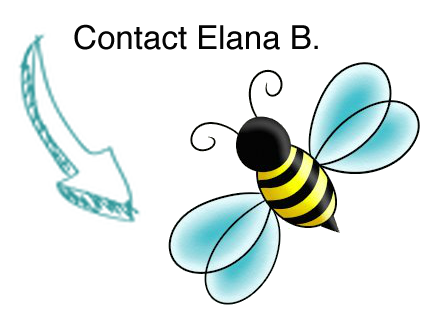Having some trouble getting through this stressful holiday season? Our good friend Crista Nezhni wrote this article for you on some simple and effective ways to handle holiday stress. If you like this article, be sure to check out the other articles Crista wrote on pets and communication. You can also sign up for our mailing list to be notified whenever a new post is published!
Holiday Stress And How To Combat It

The holidays are approaching quickly and we all know what that means: Stress! While the holiday season is meant to allow us time off work and the ability to reconnect with family and friends, the expectations and demands of the holiday season swarm us. We wonder whether we can pull off being Mr. or Mrs. Perfect around those we love. We pray that the food will not burn in the oven and that there will be enough to accommodate everyone we have invited over (plus some extra for any unexpected guests). We give ourselves short timelines and expect ourselves to become a superhero, accomplishing everything on our own in record time.
It is difficult for those of us who are not prone to enjoying crowds to put on a happy face as we surround ourselves with large groups of people. Feelings of loneliness may arise; we see commercials and movies portraying people who are happy at their holiday gatherings, connecting as though they do not have a care in the world. We don’t take the time to remind ourselves of how the entertainment realm is not the same as reality. Instead, we begin to get lost in our thoughts, and holiday stress starts to creep in.
By getting lost in our own mind’s rambling, many of us react by attacking ourselves with cognitive distortions and automatic thoughts. Cognitive distortions are the negative thoughts we tell ourselves over and over, and they are the number one cause of holiday stress. We think these negative thoughts are correct, but they are almost always untrue. These self-inflicted falsehoods lead us to feelings of anxiety and depression, diminishing our ability to unthread society’s expectations from our own.
[adinserter block=”20″]
Automatic thoughts occur in our unconscious mind as a retort to an outside stimulating event, such as a holiday stressor. Many of these thoughts are extremely polarizing all-or-nothing statements: “I will never be good enough if I don’t get this recipe right. I am stupid for failing to organize properly. I can’t cook because I messed up this dish.”
One example of distorted thinking that I often hear regards weight. This is especially prevalent around the holiday season, as many of us tend to indulge in holiday treats at the cost of our waistlines. This, in turn, prompts many individuals to become upset with themselves over the slightest weight gain during this time. Inner judgments such as “I’m a failure. I can’t control anything!” may start to arise.
We must be able to combat this type of inner dialogue to reduce the impact of holiday stress. It is important to realize that while no one is perfect, each of us has his or her own strengths. Instead of dwelling on all the failures in your life, think of the successes: A driver’s license, having a roof over your head, being gainfully employed, receiving an education, traveling for the holidays or hosting a celebration for others, raising children, caring for pets, and so on.
 Remind yourself of all the things you do have control over: chewing, breathing, the words that come out of your mouth, tying your shoes, your emotional reactions, getting up in the morning, laying down at night, or whether you brush your hair and teeth. These don’t have to be extraordinary achievements; no one is asking you to climb Mount Everest, but these lists can include major accomplishments if you like. Writing down negative thought and challenging them with positive thoughts is a terrific strategy for reducing holiday stress and keeping in tune with positive emotions. It can also help an individual to be mentally present and in the here and now during holiday events.
Remind yourself of all the things you do have control over: chewing, breathing, the words that come out of your mouth, tying your shoes, your emotional reactions, getting up in the morning, laying down at night, or whether you brush your hair and teeth. These don’t have to be extraordinary achievements; no one is asking you to climb Mount Everest, but these lists can include major accomplishments if you like. Writing down negative thought and challenging them with positive thoughts is a terrific strategy for reducing holiday stress and keeping in tune with positive emotions. It can also help an individual to be mentally present and in the here and now during holiday events.
This technique is useful for children and adults alike. Remember, children learn from those to whom they are closest. If you engage in combating automatic thinking and cognitive distortions in your daily life, they will have the chance to learn early on how to incorporate their own healthy thinking style. Their expectations will be more self-formulated than the simple ones society created for them. The atmosphere in your household will be more positive and less disposed to constant worry and anxiety.
I hope each of you has a wonderful holiday season filled with warmth and love. Don’t forget to treat yourself kindly, and look out for that holiday stress!








Pingback: Guest Post: Signs That a Person Needs Substance Abuse Treatment by Crista Nezhni - Elana B.